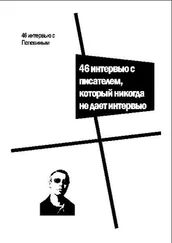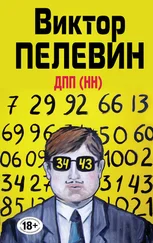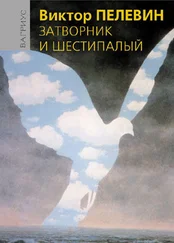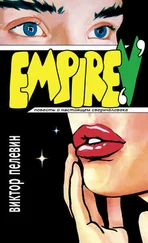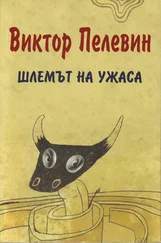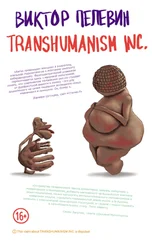Виктор Пелевин - Buddha's Little Finger
Здесь есть возможность читать онлайн «Виктор Пелевин - Buddha's Little Finger» весь текст электронной книги совершенно бесплатно (целиком полную версию без сокращений). В некоторых случаях можно слушать аудио, скачать через торрент в формате fb2 и присутствует краткое содержание. Жанр: Современная проза, на английском языке. Описание произведения, (предисловие) а так же отзывы посетителей доступны на портале библиотеки ЛибКат.
- Название:Buddha's Little Finger
- Автор:
- Жанр:
- Год:неизвестен
- ISBN:нет данных
- Рейтинг книги:5 / 5. Голосов: 1
-
Избранное:Добавить в избранное
- Отзывы:
-
Ваша оценка:
- 100
- 1
- 2
- 3
- 4
- 5
Buddha's Little Finger: краткое содержание, описание и аннотация
Предлагаем к чтению аннотацию, описание, краткое содержание или предисловие (зависит от того, что написал сам автор книги «Buddha's Little Finger»). Если вы не нашли необходимую информацию о книге — напишите в комментариях, мы постараемся отыскать её.
Buddha's Little Finger — читать онлайн бесплатно полную книгу (весь текст) целиком
Ниже представлен текст книги, разбитый по страницам. Система сохранения места последней прочитанной страницы, позволяет с удобством читать онлайн бесплатно книгу «Buddha's Little Finger», без необходимости каждый раз заново искать на чём Вы остановились. Поставьте закладку, и сможете в любой момент перейти на страницу, на которой закончили чтение.
Интервал:
Закладка:
A few minutes later I got to my feet and set off up the hill again. I was feeling better; more than that, the thoughts that had just passed rapidly through my mind and seemingly crushed me had suddenly become a source of subtle pleasure. The sadness that had enveloped me was inexpressibly sweet, and I knew that in an hour’s time or so I would attempt to summon it again, but it would not come.
I soon reached the manor-house. I noticed that there were several horses tethered in the courtyard that had not been there before, and that smoke was rising from the chimney of one of the outhouses. I halted at the gates. The road continued on up the hill and disappeared around a bend into dense greenery; not a single building was visible above me, and it was quite incomprehensible where it might lead to. I did not wish to encounter anyone, so I entered the courtyard and made my way furtively round the house.
‘You’ve lost again, you idiot!’ shouted a bass male voice on the first floor.
They must have been playing cards. I reached the edge of the building, turned round the corner and found myself in a back yard, which proved to be unexpectedly picturesque - several steps away from the wall the ground fell away steeply, forming a natural depression concealed beneath the shade of the trees that overhung it. A babbling brook ran through the dip and I could see the roofs of two or three outbuildings, while further off, in a small open area, there was a tall stack of hay, exactly like those depicted in the idyllic rural scenes to be found in the journal Niva. I felt a sudden, crazy desire to tumble in the hay, and I set off towards the stack. Then suddenly, when I was only ten paces away from it, a man with a rifle leapt out from beneath the trees and barred my way.
Standing before me was the very same Bashkir who had served us dinner in the staff car and then uncoupled the weavers’ carriages from our train, but now his face was covered by a sparse black beard.
‘Listen,’ I said, ‘we know each other, don’t we? All I want to do is take a roll in the hay. I promise you not to smoke.’
The Bashkir did not react to my words in any way; his eyes gazed at me without the slightest trace of expression. I attempted to walk round him, and then he stepped backwards, raised his rifle and set the bayonet against my throat.
I turned and walked away. I must confess that there was something in the Bashkir’s manner which I found genuinely Irightening. When he pointed his bayonet at me he had gripped his rifle as though it were a spear, as if he had no notion that one could shoot from it, and the movement had hinted at such wild strength born of the steppe that the Browning in my pocket had seemed no more than a simple child’s firecracker. But it was all surely no more than nerves. When I reached the brook I looked back, but the Bashkir was no longer anywhere to be seen. I squatted down by the water and carefully washed my astrakhan hat in it.
Suddenly I noticed that the murmuring of the brook was overlaid, like the strains of some obscure instrument, by the tones of a low, rather pleasant-sounding voice. In the building nearest to me which, judging from the chimney in its roof, had once been a bathhouse, someone was intoning:
‘Calmly I walk the open field in my white shirt… And the storks are like the crosses on the bell towers.’
Something in these words moved me, and I decided to see who was singing. Wringing the water from my hat, I thrust it into my belt, walked across to the door and swung it open without knocking.
Inside there was a wide table made of freshly planed boards and two benches. On the table stood an immense bottle containing a turbid liquid, a glass and several onions. Sitting on the nearer of the benches with his back to me was a man wearing a white Russian shirt hanging loose outside his trousers.
‘I beg your pardon,’ I asked, ‘but is that not perhaps vodka in your bottle?’
‘No,’ said the man, turning round as he spoke, ‘this is moonshine.’
It was Chapaev.
I started in surprise. ‘Vasily Ivanovich!’
‘Hi there, Petka,’ he answered with a broad smile. ‘Back on your feet already, I see.’
I had absolutely no memory of when we had moved on to such familiar terms. Chapaev glanced at me with gentle cunning; a damp lock of hair had fallen across his forehead and his shirt was unbuttoned down to the middle of his belly. His appearance was so absolutely ordinary and so far removed from the image that I carried in my memory that I hesitated for several seconds, thinking it was a mistake.
‘Siddown, Petka, siddown.’ he said, nodding towards the other bench.
‘I thought you were out of town, Vasily Ivanovich,’ I said as I took a seat.
‘I got back an hour ago.’ he said, ‘and came straight to the bathhouse. Just the job in this heat. But why are you asking about me, tell me about yourself. How’re you feeling?’
‘Fine,’ I said.
‘Gets up just like that, puts on his hat and goes off into town. You should stop playing the bleeding hero. What’s this talk I hear about your losing your memory somewhere?’
‘1 have,’ I said, trying not to pay any attention to his buffoonery and perverse use of uncultured language. ‘But who could have told you already?’
‘Why Semyon, who else? Your orderly. You really can’t remember anything then, eh?’
‘All I remember is getting into the train in Moscow,’ I said. ‘Everything after that is a blank. I cannot even recall under what circumstances you began calling me Petka.’
Chapaev stared me in the face for a minute or so with his eyes screwed up, as though he were looking straight through me.
‘Yes,’ he said finally, ‘I see. A bad business. I reckon that you, Petka, are simply muddying the water.’
‘What water?’
‘Carry on muddying it if you like,’ Chapaev said mysteriously, ‘you’re still young yet. And I began calling you Petka at Lozovaya Junction, not long before the battle.’
‘I know nothing of this battle,’ I said, frowning. ‘I keep hearing about it all the time, but I cannot remember a single thing. It just makes my head start aching.’
‘Well, if it makes your head ache, don’t think about it. You wanted a drink, didn’t you? So have one!’
Tipping the bottle Chapaev filled the glass to the brim and pushed it across to me.
‘Many thanks,’ I said ironically and drank. Despite its frightening murky sheen, the moonshine proved to be quite excellent - it must have been distilled with some kind of herbs.
‘Like some onion?’
‘Not at the moment. But I do not rule out the possibility that in a while I might indeed reach a state in which I am able and even eager to chew onions with my moonshine.’
‘Why so down in the dumps?’ asked Chapaev.
‘Oh, just thoughts.’
‘And what thoughts might they be?’
‘Surely, Vasily Ivanovich, you cannot really be interested m what I am thinking?’
‘Why not?’ said Chapaev. ‘Of course I am.’
‘I am thinking, Vasily Ivanovich, that the love of a beautiful woman is always in reality a kind of condescension. Because it is simply impossible to be worthy of such a love.’
‘You what?’ said Chapaev, wrinkling up his forehead.
‘Enough of this swaggering foolery,’ I said, ‘I am being serious.’
‘Serious are you?’ asked Chapaev. ‘All right then, try this for size - condescension is always movement down from something to something else. Like down into this little gully here. So where does this condescension of yours go to - and from where?’
I started thinking about it. I could see what he was getting at: if I had said that I was talking about the condescension of the beautiful to the ugly and the suffering, he would immediately have asked me whether beauty is aware of itself, and whether it can remain beauty having once become conscious of itself in that capacity. To that question, which had driven me almost insane through long sleepless nights in St Petersburg, I had no answer. And if the beauty I was speaking of was a beauty unconscious of itself, then there could surely be no talk of condescension? Chapaev was very definitely far from simple.
Читать дальшеИнтервал:
Закладка:
Похожие книги на «Buddha's Little Finger»
Представляем Вашему вниманию похожие книги на «Buddha's Little Finger» списком для выбора. Мы отобрали схожую по названию и смыслу литературу в надежде предоставить читателям больше вариантов отыскать новые, интересные, ещё непрочитанные произведения.
Обсуждение, отзывы о книге «Buddha's Little Finger» и просто собственные мнения читателей. Оставьте ваши комментарии, напишите, что Вы думаете о произведении, его смысле или главных героях. Укажите что конкретно понравилось, а что нет, и почему Вы так считаете.

